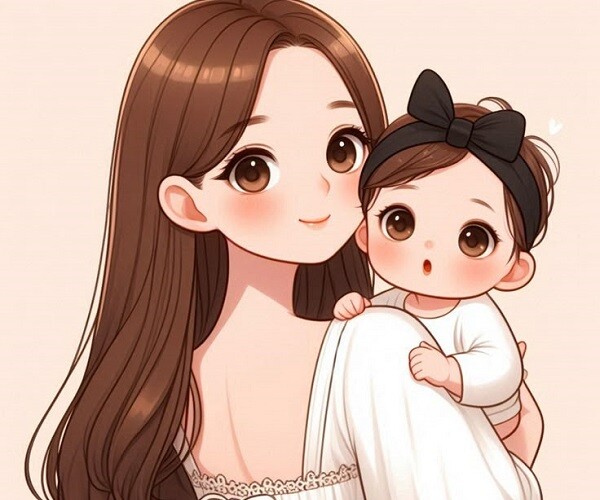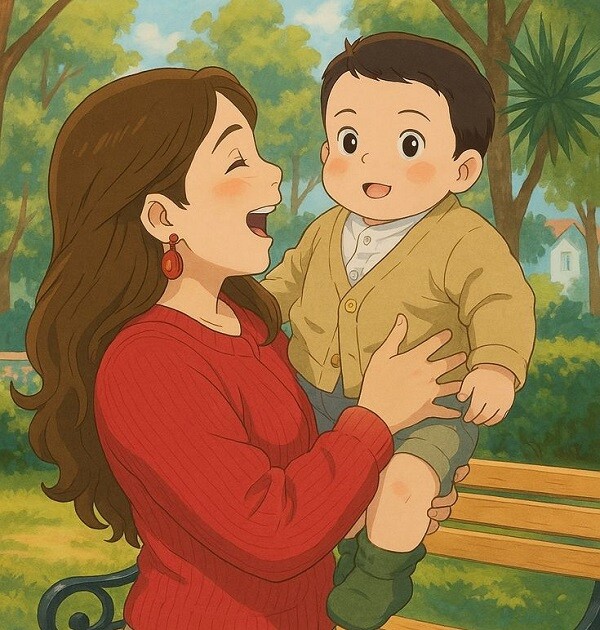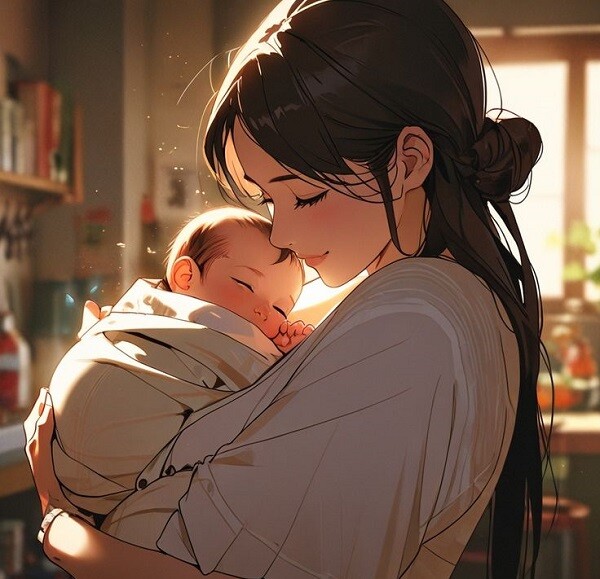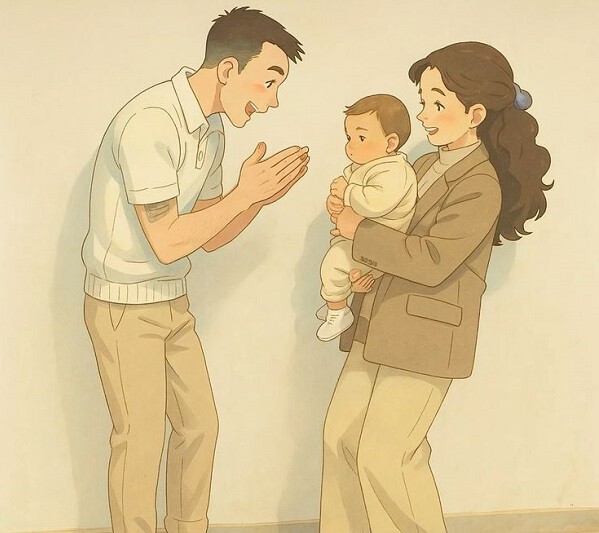Crying is a baby’s way of communicating, and a mother’s instinct is to pick them up. In fact, newborns cry for various reasons such as hunger, discomfort, or sometimes loneliness. Responding promptly to these emotions helps parents understand their needs and makes the baby feel cared for and loved.
Therefore, babies who are frequently held and cuddled by their parents can benefit in many ways, and this can make a significant difference in their lives even 20 years later.


Enhanced Brain Development
In fact, newborns explore the world through their sense of touch. Their sensory system is highly sensitive, and touching different surfaces and objects plays a crucial role in shaping their perception of the surrounding environment.
When a baby is held close to its mother’s chest, it can feel her heartbeat and body temperature. This skin-to-skin contact provides a sense of security and stimulates the release of important information for the baby’s development. The mother’s heartbeat creates a familiar and comforting environment for the baby, fostering a deep connection between mother and child.
Everything is new and intriguing to infants. They look at one thing and touch another, which can promote better brain development.
Each time a baby touches something new, it remembers the shape, feels the texture, senses the temperature, and even perceives the scent. These experiences contribute to building the foundation for future cognitive and critical thinking abilities.

Enhanced Brain Development.

Improved Health and Immunity
Parents may observe that their baby’s mood improves every time they are held. This is due to the release of oxytocin, a hormone often referred to as the “love hormone.” Oxytocin makes babies feel secure and promotes growth and a stronger immune system.
Oxytocin plays a vital role in bonding between parents and their children. When a baby is cuddled, this hormone is produced not only in the baby’s body but also in the person holding them, creating a loving feedback loop.
This sense of security helps reduce anxiety and stress in babies, fostering a positive psychological state. They feel protected, which leads to the development of trust and a strong connection with their caregiver, especially the mother.

Improved Health and Immunity.

Increased Sense of Security
Most of the time, when babies cry between the ages of 0 and 3, there is a reason. Parents should understand why their baby is crying, whether it’s due to illness, a dirty diaper, or something else, and address the issue as soon as possible.
Additionally, children under 3 years old require their parents’ full attention and care, and they are highly dependent on them. During this stage, when children are loved and cared for appropriately, they feel more secure. This sense of security contributes to their emotional development, self-confidence, and social interaction skills.
Children who feel secure during their early years tend to have outgoing personalities. As they grow up, most of them become “social butterflies” with excellent social skills and communication abilities. They easily connect with others, establish relationships, and navigate complex social situations. Therefore, emotional security in the early years lays the foundation for this development.

Increased Sense of Security.
On the other hand, children who do not feel secure often have distant relationships with family members and struggle with trust issues. They may be shy or reclusive.
Sometimes, these children seek emotional fulfillment from outsiders and are more vulnerable. A lack of attachment and security can lead to psychological issues and anxiety as they grow up.

Boosted Confidence and Stronger Family Bonds
When parents frequently say, “I love you,” along with a warm hug, they are sending the message, “You are important.” Over time, the child internalizes this, and their self-confidence grows.
Children of all ages enjoy hugs because they provide warmth, security, and a sense of healing and attachment as they grow up. The bond with parents is like the backbone of a child, connected by blood and affection.

Stronger Family Bonds.
On the contrary, a child who is frequently ignored and not held closely by their mother will feel a lack of love and care.
Consequently, these children may develop poor independence, low self-esteem, and face challenges in establishing social relationships. They tend to seek attention from external sources and are more vulnerable in social situations.
Frequent cuddling will not spoil your child. Instead, these intimate moments provide a sense of warmth and security, creating positive memories. So, parents, embrace your children and shower them with your warmest affection.







































